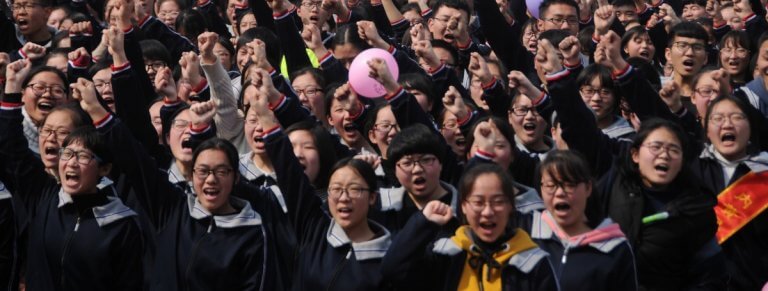
Students in Vietnam and China are doing better in school than their peers in richer, OECD countries, a new World Bank report has found.
The findings lead researchers to infer that income may not have such a big role to play in how well students fare in education, according to the report titled “Growing Smarter: Learning and Equitable Development in East Asia and the Pacific”, Nikkei Asian Review reported.
“Average performance in Vietnam and in B-S-J-G (Beijing, Shanghai, Jiangsu and Guangdong) regions in China surpassed OECD member countries,” the report wrote.
“Vietnam and B-S-J-G (China) combined have slightly fewer students than the United States, but twice as many top math performers.”

Vietnam and Beijing, Shanghai, Jiangsu, and Guangdong (China) have more top performers than the United
States on PISA math assessments. Source: World Bank
It’s a result that overturns the popular notion that only students from wealthy Asian countries like Singapore can do well in international assessments such as the Programme for International Student Assessment (PISA).
“Their performance is proof of concept that a low- or middle-income country can produce students who learn as much as or more than students from high-income countries,” the report said.
Michael Crawford, co-author of the report and the World Bank’s lead education specialist said: “Students in Vietnam and China from the second-lowest income quintile (households in the 21st to the 40th income percentile) score better than the average OECD student.”
“This is quite notable, because in general it is hard for students from lower-income households to score, on average, higher than the typical student from a wealthy group of countries,” Crawford said.
The study also found that 40 percent of students in the 18 East Asian countries studied “perform well” and, that Japan and Singapore’s education system “allow [students] to learn as much as or more than students anywhere in the world.”

China’s Peking University is now ranked 27th on Times Higher Education’s World University Rankings. Source: Wikimedia Commons
Seven of the top 10 performing education systems in the world are located in the region.
This could explain why universities in the region have been improving in global rankings recently, as some recent surveys suggest. It’s still a long way from beating institutions like the Ivy League and Oxbridge, but Chinese universities, in particular, have managed to break into the global top 30 categories in certain university subjects.
Contrastingly, the report found other countries in the region are underperforming, such as East Timor, Indonesia, Malaysia, the Philippines and Thailand, with their states of education described as “in crisis”. The report said:
“Up to 60 percent of students in the region are in poorly performing school systems, where performance in key subjects is either low or unknown. Many of these students have learning outcomes that are below basic proficiency levels, and are greatly disadvantaged as a result.”
Liked this? Then you’ll love these…
Here’s how UK schools plan to catch up with Asia’s maths whizzes
‘Excessively regimented’ South Korean schools need to get to the 21st century







